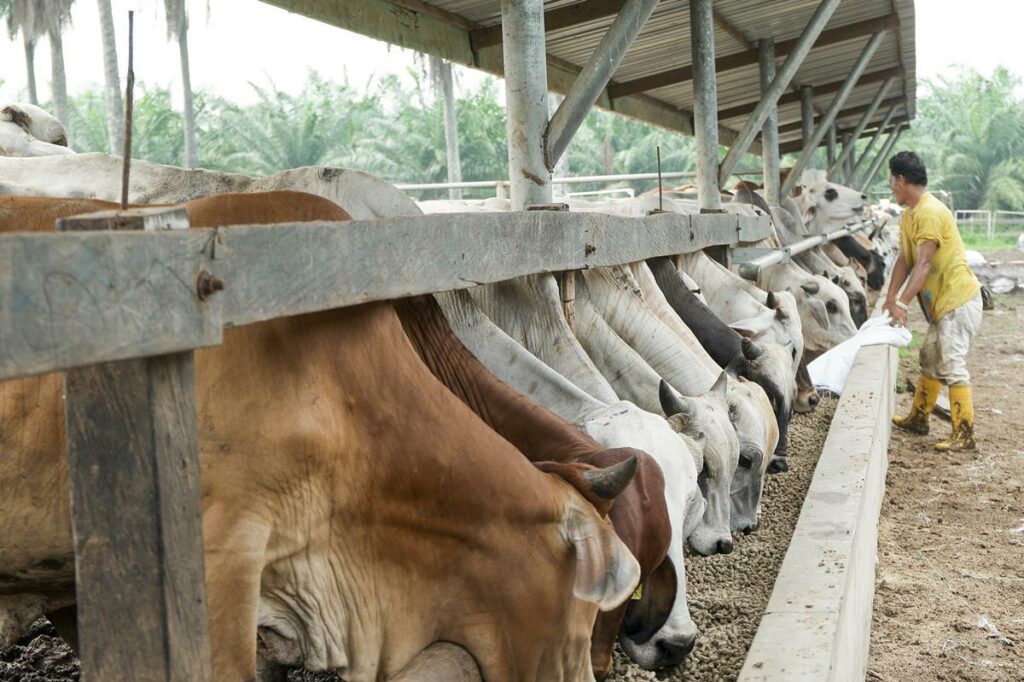The Brazilian cattle sector could see beef production drop by 25% by 2050, while experiencing a 37% decline in available pastureland, according to new research.
The reduction in available pastureland would come from forest-conservation strategies and competition for land, analysis from Orbitas, a climate advisers initiative has revealed.
In a new report released today (Wednesday, April 3), Orbitas found that despite the presence of climate-related risks, there are new opportunities for producers who invest in sustainable efficiency improvements and diversify revenue streams.
The report stated that investments in low-cost sustainable production efficiencies could drive an 18% rise in yields for cattle producers, a 19% increase in producer prices and a 9% increase in Brazilian beef exports.
Orbitas found that cattle producers who transition to more sustainable cattle production “could improve their financial resilience and performance, with an expected 88% increase in agricultural capital investment”.
Brazilian beef production
Brazil accounts for 20% of global beef exports and is second in the world in stock, with 232m head of cattle, Orbitas explained.
The climate advisers initiative said this position means the sector contributes nearly 10% to Brazil’s gross domestic product (GDP), and employs 3.3m people domestically, including 2.5m farmers.
In their analysis, Orbitas revealed the impact on the Brazilian cattle sector that a scenario aligned with keeping global warming under 2oC could have.
The following are the risks for the Brazilian cattle sector in this scenario:
- Emission intensive cattle producers would experience rising costs as GHG prices grow;
- Land conservation policies and greater competition for land from other sectors would result in 37% less pastureland available;
- There is an 80% chance of profitability loss for most producers with economic shocks to price and transportation costs if they do not sustainably increase production efficiency by 2050. Producers in the northeast of Brazil are the most vulnerable as current profits can be up to 12 times less than those in the south.
- Producers who do not increase production efficiency or diversify revenue could face financial losses over $155 USD/ha by 2050;
- Responses to climate change could drive a 25% drop in domestic beef production and a significant decline in domestic beef consumption;
- Rising prices and shifting consumer preferences could reduce Brazilian ruminant meat demand by 38% and global demand by 5%.

Orbitas outlined that significant opportunities exist for stakeholders operating in Brazil’s cattle sector under a 2oC-aligned forecast:
- Cattle producers would gain opportunities to diversify revenue streams through agroforestry and non-timber forest products, and through biodiversity and carbon markets;
- Producers could experience an 18% increase in pasture yield associated with low-cost technological change by 2050;
- Regenerative soil restoration practices could increase the per hectare yield of severely degraded pastures by up to 310%, raising profitability by over $375 USD/ha for the lowest productivity producers today;
- Deforestation-free and low-emission beef products could capture increased producer pricing opportunities 19% higher than 2020;
- Investing in low-cost techniques could increase resilience to climate transition financial risks. These include pasture management practices, increased fertiliser efficiency and use and sustainable farming methods, such as integrated crop-livestock-forest systems and silvopasture;
- Brazil has the opportunity to invest in international trade, with Brazil projected to increase its share of global beef exports by 9% by 2050;
- Net emissions from land use in 2050 could decrease by 1,356 million tonnes of carbon dioxide compared to 2020 levels.
Niamh McCarthy, Orbitas director said: “The future of the Brazilian cattle sector is set to look very different to how it appears and operates today.
“The sector has real climate risks it needs to contend with if it is to remain a significant contributor to Brazil’s GDP and also a key player in global ruminant markets,” she added.
